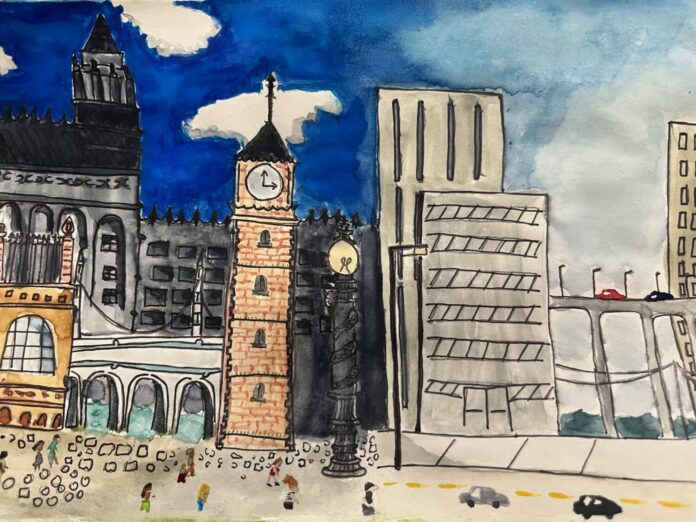I was leaving a jazz bar in San Francisco on a cold and rainy night. My family and I called a Waymo to pick us up. We entered the Waymo to the sound of cozy lo-fi music and the tapping of rain on the car window. It was one of the most comfortable, curated moments I’ve experienced, and it was very convenient.
Modern science and technology, which have made everything more convenient, have completely revolutionized our lives. Technology is not only making ride-hailing more convenient, but it has also shaped everything we do: from ChatGPT to a Roomba vacuum to Google Maps.
Nonetheless, becoming a culture of convenience comes at a cost, evident in the aesthetics of our everyday lives. When I lived in Killeen, TX, in a quaint suburban home, I would walk around the neighborhood and see mile after mile of homes that all looked the same. Every home was a copy-paste of the one next to it, assumedly, because it was easier to use the same design for every house in the neighborhood.
We even see the cost of a culture devoid of effort in the art that we create. Do you realize there are 10 Fast and the Furious movies with an 11th coming out soon? I enjoyed the first five movies — and I am not here to judge your movie taste — but when you are a culture that tries to make everything easy, you end up with 11 movies about fast cars.
Walk around any city or town in America, and you will see billboards, parking lots and nowhere to sit without consumption. This is why your Instagram feed will be filled with everyone’s European trip in the summer; we want to get away from the aesthetics of our current culture and back to a time when even a lamppost was beautiful. Nevertheless, the ugliness and laziness of our aesthetics are not the worst part. There is a scary trend of technology companies trying to replace real-life friendship; look at Friend.com. What will happen to us when technology companies figure out a way to curate a friendship experience?
Journalists increasingly publish stories of people falling in love with ChatGPT, using it as a therapist, or, even worse, AI psychosis. These problems might only be the start of what is to come, as technology companies continue to invest billions of dollars into artificial intelligence. Considering our culture of convenience, why wouldn’t we be friends with a chatbot? Friendship can be quite an inconvenience.
It might mean going out of your way to try to help your friend who made a silly decision, or you might get into a fight with a friend that could leave you feeling emotionally unsettled. Friendship is not always so easy. ChatGPT, on the other hand, will never inconvenience you. It will never call you at 1:00 a.m. because it fell off an electric scooter while riding down a hill. The chatbot was made to tell you precisely what you want to hear so you can keep being its customer. When a trouble-free, effortless life is the goal, we inevitably end up with an AI best friend who will tell us everything we want to hear.
The danger of an expedient life is not just ugliness, but a life in which we are alienated from one another; a life in which we choose to stay in our rooms, messaging AI instead of going out to meet real people. I am not saying life needs to be unbearably difficult; we have to find the right balance. For example, I’d never advocate for someone to walk to class barefoot just for the sake of doing something difficult. Still, I think there is a dangerous trend of trying to make everything in our lives expedient or convenient. It’s time to tip the balance and put in a little more effort into life.
I remember walking around Stanford and seeing an old stone water fountain with colorful tiles that formed an image of a ship. This level of care and attention to something as simple as a water fountain could be put into everything, and your community would be thankful for it. You could prepare a delicious meal instead of getting a quick bite from the drive-thru at McDonald’s, and your body would thank you. The gain might not be financial, but the world will always be grateful for the effort you put into anything. Your friends will be grateful when you go out of your way for them, and even though it may feel like a burden in the moment, you will also find yourself happier when you put more effort into life.
Otherwise, we will continue down this trajectory of expedience, where we overlook the small details of life and end up alone with only the screens to keep us company. No one wants to live in a world without real-life friends. Besides, ChatGPT could never deliver you a surprise birthday cake on your birthday.
Contact Edgar Zatarain at zatarain@oxy.edu
![]()































